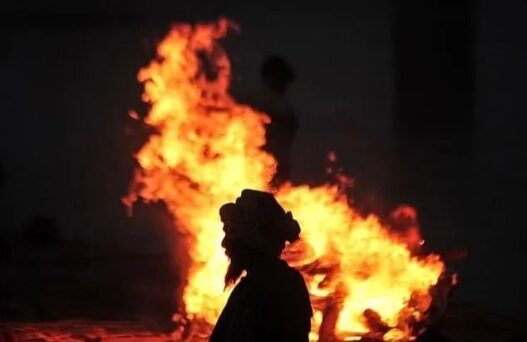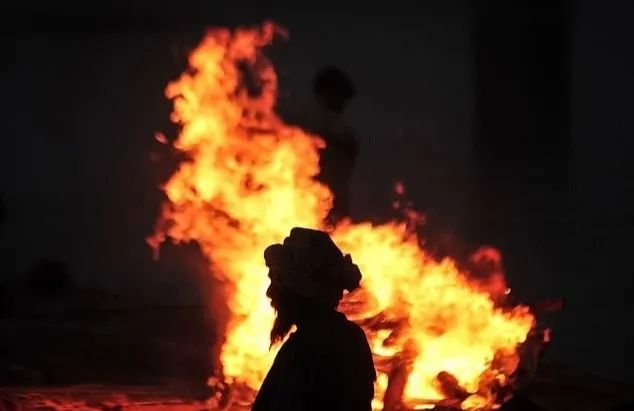In India, the tradition of dowry is deeply embedded in society. The bride’s family is expected to provide significant amounts of money or valuable gifts to the groom’s family. This practice has often led to tragic outcomes. A dissatisfaction with the dowry can result in harassment, abuse, or even death.
From 2005 to 2022, thousands of deaths linked to dowry disputes were reported in India. While these numbers have slightly decreased, over 6,000 dowry-related deaths were still documented in 2022. This disturbing trend highlights the gender inequality present in the country. The birth of a daughter is often viewed as a financial burden, leading many families to avoid it. If dowry demands are unmet, the bride’s family can face harassment or worse.

Despite the government’s efforts to curb dowry-related violence, the Dowry Prohibition Act (passed in 1961) is still not fully effective. The law targets those who harass women over dowry. However, it has led to unintended consequences. Some women have used the law as a tool to falsely accuse their husbands, resulting in serious legal repercussions.
The Tragic Death of Atul Subhash: A Call for Justice
On December 9, 2024, a heart-wrenching incident brought dowry harassment into the spotlight. Atul Subhash, a 34-year-old man from Bangalore, was found dead in his home. He had hanged himself. A note found on his body read, “Justice is due.” This message quickly sparked outrage across India. Protests were held in multiple cities, including Times Square in New York.
Atul’s final words were in a 24-page letter addressed to his family and the public. He expressed his despair at the legal system and detailed the abuse he had suffered at the hands of his wife, Nikita Singhania. Atul’s letter painted a picture of a man trapped in false accusations, legal battles, and emotional turmoil. He accused his wife of filing repeated dowry harassment complaints, despite a lack of evidence.
In his letter, Atul also called for his case to be live-streamed. He wanted the world to see the abuse of the legal system. His words resonated with many men facing similar challenges in India’s flawed marriage and legal systems.
The Dark Side of Dowry Harassment Laws
Atul’s case is not isolated. In India, the 498A section of the Indian Penal Code allows women to file complaints of dowry harassment against their husbands and families. The law is intended to protect women from abuse, but it has been widely criticized for its misuse. In some cases, women have exploited it in divorce proceedings, filing false claims to gain an advantage in court.
Atul’s wife, Nikita, allegedly filed multiple lawsuits against him, accusing him of dowry harassment and other crimes. Atul claimed that Nikita demanded large sums of money to drop the charges and allow him to see his son. According to Atul, she asked for a dowry of 3 million rupees. She also manipulated the legal system to extort money from him.
In his final moments, Atul claimed that these legal battles had drained him financially and emotionally. He spoke out against the widespread misuse of dowry harassment laws and called for reform.
A Mother’s Heartbreaking Words
Before his death, Atul had a painful conversation with his mother-in-law. Atul recalled that his mother-in-law mockingly told him, “I thought you’d be dead by now. What are you waiting for?” She added that his death would result in his parents losing everything, and his wife would inherit his wealth. This conversation left Atul feeling hopeless and betrayed. He ultimately decided to end his life.
Protests and Reactions Across India
Atul’s death sparked protests throughout India. Men’s and women’s rights groups called for justice. In cities like Kolkata and Lucknow, people took to the streets. They held candles and chanted for a fairer legal system. The protests also spread beyond India. Demonstrators gathered at Times Square in New York.
The outcry against the misuse of dowry laws has gained momentum. Many believe these laws are being used to extort men and destroy families. Amit Deshpande, the founder of a men’s rights group in Mumbai, said, “Every year, we receive thousands of calls about fake dowry harassment claims. Men are dragged through lengthy legal battles.” He added that these cases create an entire industry built around extorting money from men.
A Controversial Legacy
Atul’s tragic story continues to fuel debate in India about the fairness of dowry laws. While the law has been instrumental in protecting women from dowry-related violence, it has flaws. As more men come forward with similar experiences, the question remains: how can India create a legal system that treats both men and women equally?
Atul’s case is still under investigation. Whether justice will be served remains uncertain. His final words—demanding justice—continue to resonate with those who are calling for a more balanced and fair legal system.



















